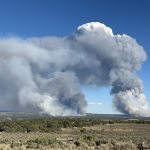Feinsinger column: For optimal health, include mushrooms in your diet
Doctor's Tip

Dr. Joel Fuhrman, author of several books on nutrition, writes in “Eat to Live” that “mushrooms contain a variety of powerful phytochemicals and have been linked to decreased risk of chronic diseases, especially cancer.”
We tell people to “eat the rainbow” when it comes to fruit and vegetables — meaning that varieties with intense color have the most antioxidants and other healthful micronutrients. Mushrooms have a rather drab color, yet they are nutritious. However, they are a fungus rather than a fruit or vegetable, so the intense color rule doesn’t apply.
Mushrooms have the highest concentration of ergothioneine of any food. Ergothioneine is an amino acid that has potent antioxidant activity, that protects mitochondria (the tiny “power plants” in cells) against harmful free radicals. Ergothioneine is concentrated in parts of the body that experience a lot of oxidative stress, such as the liver and the eye lenses — as well as tissues that are particularly sensitive to free radical damage such as bone marrow and semen. In his book “How Not to Die,” Dr. Michael Greger says that “depriving human cells of [ergothioneine] leads to accelerated DNA damage and cell death.”
The following are examples of how mushrooms help prevent cancer:
- Angiogenesis refers to formation of new blood vessels. Cancer cells make angiogenesis promotors that enable them to multiply and metastasize. Compounds in mushrooms block this process, causing cancer cells to die.
- Some of the 2-billion cells in our bodies are always mutating. Mushrooms help optimize our immunity, killing off these mutant cells before they can propagate and cause cancer.
- Excessive estrogen contributes to breast cancer, and aromatase is an enzyme involved in estrogen production. Inhibitors of aromatase are used in chemotherapy used to treat breast cancer, and mushrooms contain a natural aromatase inhibitor. Asian women have a much lower incidence of breast cancer than do women on a Western diet—part of the reason is thought to be due to the prevalence of mushrooms in Asian diets.
Inflammation is implicated in many diseases including asthma, and mushroom have anti-inflammatory properties. Dr. Fuhrman credits mushrooms as being one of the few food sources of vitamin D.
Dr. Greger points out that “mushrooms make a great, chewy replacement for meat.” His favorite way of eating mushrooms is to drizzle balsamic vinegar on them and grill them using low heat, turning them frequently. Recipes for tasty mushroom stroganoff can be found on the internet and in vegan cookbooks.
There are two caveats about eating mushrooms (other than being very cautious when gathering your own in the wild):
- Avoid raw mushrooms, because they contain a mild toxin called agaritine, which fortunately is destroyed by cooking. Morel mushrooms have a higher level of this toxin, and even cooked morels can release this toxin when combined with alcohol.
- Arsenic is often present in chicken feed. Some commercial mushrooms are grown with fertilizer containing chicken dung that may contain arsenic. However, the amount of arsenic that people get from eating the quantity of mushrooms that most people eat is not enough to be problematic.
Bottom line: Mushrooms are good for you, so eat them a few times a week, but don’t eat huge quantities, and avoid raw ones.
Dr. Greg Feinsinger is a retired family physician who started the non-profit Center For Prevention and Treatment of Disease Through Nutrition. For questions or to schedule a free consultation about nutrition or heart attack prevention contact him at gfmd41@gmail.com or 970-379-5718.

Support Local Journalism

Support Local Journalism
Readers around Glenwood Springs and Garfield County make the Post Independent’s work possible. Your financial contribution supports our efforts to deliver quality, locally relevant journalism.
Now more than ever, your support is critical to help us keep our community informed about the evolving coronavirus pandemic and the impact it is having locally. Every contribution, however large or small, will make a difference.
Each donation will be used exclusively for the development and creation of increased news coverage.









